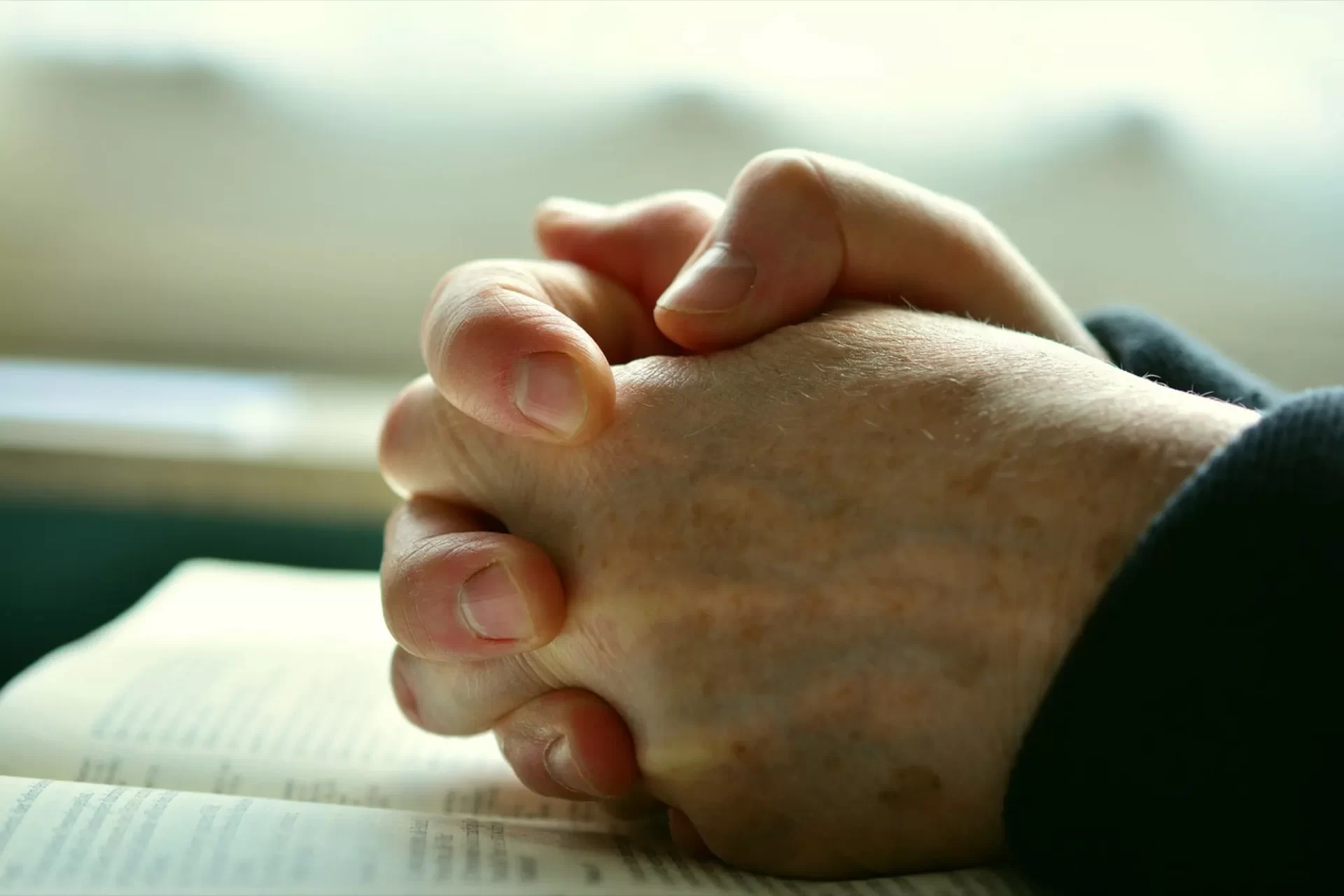Philippians 4:4-7 “Rejoice in the Lord always. I will say it again: Rejoice! 5 Let your gentleness be evident to all. The Lord is near. 6 Do not be anxious about anything, but in every situation, by prayer and petition, with thanksgiving, present your requests to God. 7 And the peace of God, which transcends all understanding, will guard your hearts and your minds in Christ Jesus (Philippians 4:4-7).
Most of us can relate to feeling anxious; whether it is from a circumstance, a result of others or even a result from our own behaviors. Most often, we “worry” as an attempt to anticipate and prevent negative things from happening. As we continue to worry we ignite physical reactions such as increased heart rate, sweating and other ailments, which; naturally, makes us even more worried and thus we enter into a vicious “worry-anxiety” downward cycle. Why do we worry so much and how can we feel less anxious?
In Paul’s letter to the Philippians (above), he uses the Greek verb μεριμνάω (merimnaō, –pronounced as mer-im-nah’-o), “to be anxious” which means to worry or “be pulled apart” and when we experience this sense of being “pulled apart” we can become paralyzed or incapacitated from putting our well intended thoughts into action. [1] Indeed, we are taught that wisdom is putting knowledge into action; but if our anxious thoughts block our ability to act, then we risk not only an earthly reward for accomplishment but perhaps even a heavenly reward as well. This same Greek word is used in nearly all the New Testament’s verses for “worries” in which we are warned that when we focus on ourselves in this world we will experience worry and bring no fruit to maturity; we become unfruitful.[2]
Why then do we worry? Indeed there are certain levels of worrying that can be healthy in order to keep us motivated and prompted to complete our tasks, but at what point does worry and anxiety turn unhealthy? If we were to stop for 30 minutes and make a list of the many things that produce anxiety or worry in us, we would most likely see an underlying commonality between them that indicates “fear”. We worry and become anxious because we fear the unknown. We carry certain fears about our family, money, home, career, school, possessions, war, economy, safety and the list begets more worry! We become acutely aware of our insecurity and frailty of life and losing it. We fear losing love, life, power, independence and we worry about consequences of our mistakes and failures, so we procrastinate in order to avoid the anxiety of making the wrong choice. But what do all those fears have in common with each other? Self-focus. What is the most effective weapon against fears causing worry and anxiety? Our faith. At first glance, the answer of “our faith” may seem trite, but when we truthfully consider it, our faith can “make or break” our lives here on earth. It is a powerful weapon all Christians have when wielded.
Only by looking “up” can we have certainty in our lives, knowing that God has formed us for our time and for our own unique purpose according to His Will. When we are worried and feeling anxious because of the “what-ifs” in life, we are being self-focused and so our overwhelming anxieties are a result from living to please ourselves instead of living to please God.[3] As Christians we are told repeatedly, “don’t be self-focused, love others and love God” but sometimes, we hear such words but they slide off us like water and oil; but if we prepare our minds like rich fertilized soil, our faith will conquer, and our faith will change us to love others and God more than ourselves which, will bring us blessings. But “how” do we allow faith to grow and cultivate in our minds and actions in order not to worry or feel anxious when it can seem like the whole world is collapsing in on us?
Worry and anxiety is only a sin when it becomes prominent in our lives and we allow it to direct our actions; anxiety is a temptation and like all other temptations, it is not a sin until it is acted upon and continued without remorse or when it causes disbelief. It has been said more than once that worrying is like a rocking chair; it gives us something to do but we don’t get anywhere. We can be sure that if we worry and feel anxious but desire “not” to continue then there is a way out and we are not in sin; we can repent. So, how do we actually “stop” ourselves from worry by using our faith?
Like a mathematical formula, we must go to the root of the problem; to the fear that causes our worry and anxiety. Fear hinders our growth in Christ and as we said causes us to be unfruitful so we must battle it with what God has graciously given us to overcome them; His Word and our freedom here in America to surround ourselves with other believers who can lift each other up in the Spirit. Fear and worry result from living to please our flesh in lieu of living to please God. Instead of a sinful self-focus, we are to fear, revere God and have a responsive care for others.
Interestingly, the same Greek word in the Bible is used for both worry and concern; the way it is differentiated is whether or not the context is based on a self-focus or a concern for others in love. So it is our actions that determine whether or not we are worried versus concerned. A person who is worried is worried because something may end up causing discomfort whereas a person who is concerned is actually worried about someone other than oneself. Actions and behaviors always follow thoughts so when we can change our thinking we can change our behaviors, including our worries and anxious physical reactions. We need to take off certain thoughts and put on new thoughts. But how?
By reading and listing what Philippians 4:6-9 states we can see how God expects us to act, and by paying special attention to verse nine, we realize that His Word contains what we need in order to change. Each day reflect upon the list and ask our Father in Heaven for wisdom and guidance as to how to grow even further the following day.
God has not given us a spirit of timidity but a spirit of power, love, discipline and sound judgment. God has promised to provide all the necessities of life as we seek to please Him; He is always available to help us and is in control of every aspect of our lives.
Here’s how we can begin to change: Replace thoughts of self-focused fears and anxieties with godly focused truths such as the ones listed below.
Make a Plan for Success
In this plan we will include; thinking biblically, speaking biblically and acting biblically, in order to help us develop Christ-like manners.
- Thinking biblically includes; remembering, confessing, rejoicing, focusing, dwelling, reviewing and encouraging.
- Speaking biblically includes; confessing, not comparing, not gossiping, slandering, quarreling or accusing but reconciling with God and others.
- Acting biblically includes; forgiving, memorizing Scripture, praying, making amends, not considering self’s emotions, repenting, journaling/logging, establishing a contingency plan for times we fall and finally, always giving thanks to God who teaches us maturity by circumstances and our reaction to them.
- Remember also, that perfect love casts out all fears, so as we make and address the things on our list, replacing them with ways in which God could be teaching us, it may be helpful to focus on love as a main objective. So far, all this may sound overwhelming and “too much work”, but really, all we have done so far, is pray and make a list. Sometimes we can lose perspective, which also adds stress.
Thinking biblically
- Remember God has promised to care for us in any situation.
- Remember that God’s forgiveness is the basis for us to forgive others.
- Remember that your love for others demonstrates the love that you have for God.
- Confess all our sinful thoughts to God and ask for His help in changing this pattern.
- Rejoice and give thanks in and for everything, knowing that endurance in trials helps us conform to the image of Christ.
- Focus our thoughts on glorifying and pleasing God and on being a blessing to others in all situations.
- Review, read and sing psalms and songs that bring joy to our hearts.
- Dwell on things that are pleasing to the lord and not on temptations, do the “thought-switch” from a temptuous thought to a God-thought immediately.
- Encourage other believers to love and do good deeds; we learn a lot by teaching and helping others.
Speaking biblically:
- Confess our fears and worries and how our heart feels to God. Confess to others whom we’ve let down because of our procrastination or fears.
- Refrain from speaking about past accomplishments, sorrows or defeats, it is by comparing ourselves to our past and others that can add to our stress. Instead, boast about how the Lord has recently made a difference in our lives.
- Refrain from slander, gossip, curse, quarrel or accuse others for this turns our minds sour and does not bring forth fruitful deeds pleasing to God.
Acting biblically:
- Forgiving others as God has forgiven us. This can be a very difficult journey and sometimes takes a process but we can start here by prayerfully asking God to soften our hearts. Then we must seek godly help for how to forgive God’s way (a separate reflection in this series).
- Memorizing Scripture is our most useful weapon against temptations and ungodly thoughts.
- Praying with thanksgiving unto God for all the things around us He has provided.
- Making amends for our wrongs to others and ourselves is the beginning of a forgiving attitude and grace towards others leading to a biblical love of self and others.
- Identifying danger signals to our temptations such as places, people or circumstances that lead us to become weak and not as strong to combat the temptation to worry about mans worries.
- Staying true to our Spiritual disciplines such as our Bible reading plan, studies, praying, journaling and fellowshipping is the best way to stay on the true path towards righteousness.
Questions for Reflection
Perhaps God has placed a conviction in your heart or an idea in your mind that will be of great benefit and value to God’s kingdom; or perhaps its an idea to fulfill a lifelong dream that can bring blessings to your family and many others as well; or perhaps it’s a plan to repent in a personal area of your life; but the one thing must be done after that initial inspiration, is a type of “action”. If you have made a list as suggested above, this is where you can use your personal experiences as illustrations for yourself.
- Think of an example, in your past when you experienced great anxiety (being “pulled apart” by burnout, perfectionism, ethics, expectations, or _____).
- Write down the steps you took that enabled you to rest in God’s comfort in order to lower your anxiety and some steps that would be wrong.
- Integrate your story into the purpose of this Reflection and how you can encourage others to be fruitful men and women as well as finding peace and rest from God’s comfort and guidance?
It may be tempting to rush through the questions because of a busy schedule and so many other tasks ahead of this in your day. But it’s important to remember that doing God’s work and using your examples to help others keep from making the same mistakes is indeed storing your treasures in heaven.
Your inputs and examples could be life saving and you are indeed caring for His sheep.
[1] Root word (etymology) is that of μέριμνα (merimnaō) .
[2] Matthew 6:25, Luke 8:14)
[3] Matthew 6:25, 25:14-30, 1 Peter 3:13, 1 John 4:15









